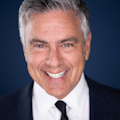What changes and what stays the same when you join a DSO?
I’ve talked a lot about what you should do leading up to joining a DSO 3.0, but I haven’t talked much about what happens on the other side. Just what does change in your day-to-day professional life?
As I’ve said, there’s no cut-and-dried answer to this question. Why? Because it depends on the deal you make. In a typical DSO 3.0, you’re only selling a percentage of your practice, so you can negotiate what that entails. If there’s something in your practice that you absolutely love, include this in your negotiations. By the same token, pass off the tasks you dread.
While the final deal will come down to your personal preferences, here are some trends I’ve observed since the creation of DSO 3.0. Let’s start with things a lot of practice owners get rid of.
Learn more about whether to join a DSO
The question on everyone’s mind: "Should I stay or should I go?"
Welcome to the DSO smoke and mirror show
Say goodbye to…
Payroll: Do you hate dealing with the nitty gritty? My guess is you didn’t enter dentistry to make sure that your team members’ W2s are in order. Most DSO organizations have payroll divisions or subcontract with large payroll companies, so this task can be taken off your plate.
Accounting: Are you sick of P&Ls, or do you avoid them altogether? Watching a practice’s finances is usually not high on the “Why I went to dental school” list. Joining a DSO 3.0 means accounting departments will step in to read and interpret statements such as P&Ls, and they’ll work with you to make strong goals for the future.
Purchasing: Working as a group, you’ll get the added bonus of combined buying power. DSO 3.0 groups that buy supplies together enjoy bulk discounts, and therefore increased profitability, that they could not have gotten as a private practice.
Hang on to…
Again, what stays is dictated by you, but many practice owners who join DSO 3.0 groups choose to hang on to these important aspects of their practice.
Your name: As you’re not selling the practice 100% to the large group, you can retain your name, brand, logo, colors, office decor, uniforms, and so on. Your practice is still your practice, so there’s no need to disrupt anything about how your practice looks and feels.
Your team: While some people choose to offload hiring, you can retain the final say about who works at your practice. By the same token, DSO 3.0 groups won’t force you to whittle down your team or dictate what people or positions need to be eliminated. You’ll still be the leader of the team, and your leadership will guide the trajectory of the practice.
Your clinical autonomy: One of the biggest DSO horror stories is that the corporate office dictates clinical policy, forcing dentists to practice in an ethical gray area, pushing treatments patients don’t need, or putting off the work they do. As a joint owner in a DSO 3.0, you’ll get to guide the clinical philosophy of the practice to ensure that your patients get the highest level of care possible.
Your time with patients: With the busy work offloaded to the DSO group, you’ll get to spend more time doing what you love—helping patients chairside. If you’re looking to increase profitability, you can look into broadening your knowledge and services in lucrative offerings such as cosmetic and sleep dentistry; you’ll have the time to really dig in. Conversely, you can keep the same amount of chairside time, have more time at home with family and friends, or even (gasp!) take longer vacations!
So, what does a day in the life of a DSO 3.0 doctor look like? Exactly what you want it to!
The key that unlocks all of this is negotiations. I can’t stress enough the importance of getting a strong team on your side to help advise you through the process. Look for an experienced consultant or business manager who can help you clearly lay out what you want. Work with a broker who has your best interest at heart. Loop in a talented tax advisor to make sure you’re mitigating your tax burden. With the right team and a dialed-in strategy, you’ll start making your career dreams a reality.
Editor's note: This article appeared in the February 2024 print edition of Dental Economics magazine. Dentists in North America are eligible for a complimentary print subscription. Sign up here.
Gary Kadi, founder of NextLevel Practice, is on a mission to help dentists beat the odds. While most dentists now don’t retire until age 69, and 96% of them aren’t financially free, Gary has developed the strategies and methods to empower dentists to retire on their terms. The more than 6,000 practices he’s worked with generate over $1 billion in combined collections. Gary has helped them discover true freedom—becoming time-free, debt-free, and frustration-free.
About the Author

Gary Kadi
Founder of NextLevel Practice
Gary Kadi, founder of NextLevel Practice, is on a mission to help dentists beat the odds. While most dentists now don’t retire until age 69, and 96% of them aren’t financially free, Kadi has developed the strategies and methods to empower dentists to retire on their terms. The more than 6,000 practices he’s worked with generate over $1 billion in combined collections. Kadi has helped them discover true freedom—becoming time-free, debt-free, and frustration-free.
Updated July 14, 2023
